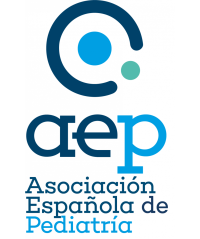SIC-SPAIN 4.0

Funding, Work Program and Call
The SIC-SPAIN 4.0 Project (“Safer Internet Centre Spain 4.0”) is a project co-financed by the European Union (EU) through the Digital Europe program, under the DIGITAL-2023-DEPLOY-04-NETWORK-OF-SICs call.
This call continues the previous funding rounds from the CEF-Telecom and Digital Europe programs, including: Safer Internet (2015-CEF-TC-2015-1), Safer Internet (CEF-TC-2018-1), Safer Internet (CEF-TC-2020-1), and Safer Internet (DIGITAL-2021-TRUST-01-SAFERINTERNET),, which have similar objectives. These programs enabled, first, the creation of the SIC (Safer Internet Centre) in Spain, known as Internet Segura For Kids (IS4K), and second, the establishment and consolidation of a public-private collaboration platform to promote safe Internet use.
Duration
The planned duration of the project is from June 2024 to November 2025, inclusive.
Motivation y Justification
The DIGITAL-2023-DEPLOY-04-NETWORK-OF-SICs call aims to support the Safer Internet Centres (SICs) across Europe in providing information about online safety, educational resources, awareness tools, and advisory and reporting services to minors, families, educators, and other professionals working with children and adolescents. The activities conducted by the SICs help minors face the risks of digital environments and become critical media thinkers, fostering their digital resilience. Moreover, it will continue to promote and strengthen anonymous reporting channels for child sexual abuse material online.
The funding will ensure the financial sustainability of the European network of SICs, enabling the Safer Internet Centre to provide the following services:
Awareness: a center dedicated to developing digital skills linked to a safe, critical, and healthy online experience, raising awareness about emerging risks and challenges from technology use. Additionally, it will emphasize the active and leading role of young people in the digital society.
Helpline: an online advisory and support service offering guidance to minors, families, educators, and other professionals on issues related to child protection in the digital environment.
Hotline: a service aimed at reducing the availability of child sexual abuse material online, managing reports from citizens and other hotlines within the international INHOPE network, in collaboration with the Spanish Law Enforcement Agencies (FCSE) and the Public Prosecutor’s Office.
Benefits
The main benefits of the SIC-SPAIN4.0 project are:
Expansion and improvement of nationwide outreach, working with children, young people, families, educators, and other relevant professionals to raise awareness about digital education and potential threats minors face when using the Internet and other technologies.
Coordination of a national public-private collaboration platform to cooperate on diagnosing and raising awareness of online risks.
Evolution of the Helpline 017, optimizing its performance through continuous improvement.
Contribution of the Spanish SIC to the implementation of the Digital Services Act in Spain and strengthening the presence of the Spanish SIC within the INSAFE and INHOPE networks through the exchange of knowledge and best practices.
Strengthened cooperation with strategic partners regarding the Hotline’s role in the fight against online child sexual abuse material.
Project objectives
The SIC-SPAIN4.0 consortium, led by INCIBE, aims to continue and expand the activities of the Spanish SIC over the next 18 months, promoting online opportunities and addressing risks with the goal of creating a safer digital environment for minors. The project focuses on the following key objectives:
Continuation and strengthening of SIC services: SIC-SPAIN4.0 will continue and enhance awareness, helpline, and hotline services. In collaboration with strategic partners, diagnostics, awareness campaigns, training programs, and practical resources will be developed. The Youth Panel will continue to provide their perspectives, and new editions of Safer Internet Day will be celebrated. Priority will be given to the development of digital skills in cybersecurity and improving digital coexistence in schools. The 017 Cybersecurity Helpline will continue offering high-quality service while strengthening ties with collaborators and partners.
Improvement of coordination: The national public-private consortium, led by INCIBE, will continue promoting initiatives across the national territory to improve child protection in the digital environment and achieve broader impact. The Advisory Council will work to align the SIC’s strategy and activities with both national and European objectives, with particular focus on contributing to the BIK+ Strategy and implementing the Digital Services Act framework.
Strengthening of presence in specialized forums: INCIBE will continue contributing to international working groups and forums related to online safety and child protection, both in the pan-European INSAFE network and the international INHOPE network. The goal is to share experiences and knowledge that will support better service provision and public policy development to promote safe and responsible Internet use among minors in Spain.
Beneficiaries
The primary beneficiaries of SIC-SPAIN4.0 will be minors, their families, educators, and other professionals working with them.
Project consortium
SIC-SPAIN 4.0 is led and coordinated by INCIBE. The consortium therefore consists of:
(Coordinator) | Spanish National Cybersecurity Institute (INCIBE)It is a public entity and under the authority of the Ministry for the transformation and the civil service through the Secretary of State for Telecommunications and Digital Infrastructure and consolidated as a reference entity for the development of cybersecurity and digital trust for citizens, academic and research networks, professionals, companies and especially for strategic sectors. With an activity based on cybersecurity and digital trust in Spain through the provision of services for citizens, businesses and academia, research against cybercrime and participation in cooperation networks at national and international level. Under the management of INCIBE, Internet Segura for Kids (IS4K) es is the Safer Internet Centre for minors in Spain and its objective is to promote the safe and responsible use of the Internet by children and adolescents. IS4K acts in line with the European strategy BIK+ (Better Internet for Kids) and is part of the INSAFE and INHOPE Networks, deploying the lines of activity of the Internet safety centres: awareness, helpline and report line, while contributing to the coordination of the actions of awareness and empowerment of young people carried out by the consortium SIC-SPAIN 3.0. |
(Beneficiary)
(Affiliated Entity) | Aprender a Mirar Foundation (FAAM)The Aprender a Mirar Foundation is a non-profit organisation that works for the defence of audiovisual media users, especially children and adolescents, through training, information, social action for prevention, denunciation and defence, and the promotion of values. It acts as a consultant to promote the quality of content, with a positive approach that guarantees the protection of minors. Asociación de Consumidores de Medios Audiovisuales (ACMAC) The Audiovisual Media Consumers Association of Catalonia is a non-profit association, affiliated to FAAM, which works for quality in the audiovisual media and in the defence of the rights of users, especially minors, who are the most defenceless in front of the screens. FAAM and ACMAC participate with the following activities:
RR.SS FAAM
RR.SS ACMAC
RR.SS Contraste Co-branding |
| Gaptain - Educación y Salud digitalGaptain is an EdTech company whose mission is to help schools and families to educate in the prevention of digital risks/addictions and in the safe and healthy use of technology. To this end, it has developed Kids Centric Universe, the educational platform for schools to develop students' digital skills by promoting healthy use habits and digital well-being. Kids Centric Universe, recommended by UNESCO in 2024, implements a digital literacy programme that is integral to the educational environment and personalised based on an initial diagnosis in the classroom. Gaptain collaborates with the consortium by implementing the tool in 25 educational environments (school + families). Other Gaptain resources: online magazine 'Educación y Bienestar digital', video channel Educación digital, online courses for families 'Educando en digital'. |
(Beneficiary) | Complutense University of Madrid (UCM)The Complutense University of Madrid is the largest Spanish university and one of the most prestigious in Europe. Its centres are spread over two campuses: Ciudad Universitaria in Moncloa and Somosaguas. It also has some centres in the city of Madrid. UCM is made up of 26 faculties, 10 affiliated centres, 37 university institutes, 7 professional specialisation schools, 9 research support centres and ICTS, 14 university clinics and hospitals, 5 UCM halls of residence and 2 centres abroad. Its 32 libraries hold 3,000,000 volumes. Its contributions to this project are:
|
(Beneficiary) | Association of Communication Users (AUC)AUC is an organisation whose main function is to defend the interests of citizens as users of media and social media, as receptors of their messages and as potential targets of their content or in the use of their data. Its activities focus, among others, on the protection of young people and children from inappropriate or harmful commercial content and communications. It has extensive experience in the project, in which it is involved in developing a system for labelling and rating content, due to its participation in forums such as the Self-regulation Code on television content and children, the ICAA Film Rating Commission, the Internet Governance Forum and advice to different providers and distributors of online content. AUC's contribution to this project focuses on:
|
(Beneficiary) | Federation of Associations for the Quality of the Media (iCmedia)iCmedia promotes different initiatives to improve the quality of audiovisual content. iCmedia is a member of the European Commission's Media Literacy Expert Group, as well as of the Joint Commission for Self-Regulation of Spanish Television, which allows them to monitor content and defend minors in this regard. Their contribution to this project is:
|
(Beneficiario) | EU Kids Online Spain (UPV/EHU)The UPV/EHU research group is the Spanish team of EU Kids Online, an international research network set up by the Safer Internet Programme in 2006 that aims to improve knowledge about the online opportunities, risks and safety of European children. These researchers use a variety of methods to map the online experiences of children and their parents, in collaboration with various national and European policy actors. Its contribution mainly focuses on activities related to diagnose. This time the Spanish team –together with some other European teams from different countries- will survey schoolchildren aged between 10 and 16. The findings of this research will contribute to improve Spanish children’s digital and general wellbeing in the following domains: • Digital safety: in order to minimize the impact of risks and maximize digital opportunities |
(Beneficiary) | Rey Juan Carlos University (URJC)The Rey Juan Carlos University (URJC) is a young public university with several campuses in the metropolitan area of Madrid, whose mission is to foster innovative research and high quality education in one of the fastest growing regions of Spain. The URJC has had a great growth reaching almost 40,000 enrolled students and nearly 1,900 professors, being currently the second public university in Madrid in number of students. The URJC has a strong international projection, with an academic community made up of 5,200 foreigners from 60 countries. As a multidisciplinary academic and research institution, the Rey Juan Carlos University promotes research aimed at economic and social development, fostering and promoting research activity, dissemination and transfer of knowledge and research results to society. The contribution of this team in the project will focus on:
|
| Children's PlatformPlataforma de Infancia is an alliance of non-profit, plural, supportive, democratic and politically and religiously independent entities that work to achieve full compliance with the rights of children and adolescents. Its main objective is the welfare of children, and to this end, among other measures, it publicises and defends their rights and promotes collaboration and participation in all related public and private bodies and the participation and association of children. The contribution that the Children's Platform makes to the Project is in the management of the Youth Panel:
|
(Beneficiary)
| EmpantalladosEmpantallados.com is a free online project aimed at Spanish-speaking parents, with the objective of helping them to educate their children in the healthy use of technology. Empantallados is an initiative of Fundación Fomento de Centros de Enseñanza, in collaboration with numerous experts in education, health and technology. Empantallados will support the mission of the Consortium, with:
|
| Cibervoluntarios FoundationCibervoluntarios Foundation is a pioneering organisation in technological volunteering and aims to alleviate social gaps, generate social innovation and citizen empowerment, promote Human Rights and the achievement of the 2030 Agenda through the social use of ICTs. Since 2001, Fundación Cibervoluntarios has been promoting digital transformation with social impact, expanding the rights, opportunities and capacities of thousands of people in situations of digital vulnerability through the use and knowledge of all kinds of technological tools. To achieve this, they work with a network of more than 1,800 cyber-volunteers and collaborate with more than 1,300 national and international entities and organisations. With all their activities, they reach 60,000 people annually. A track record that has been recognised by the Financial Times as one of the 100 entities leading the Digital Transformation in Europe and more recently by FORBES Magazine as one of 'Spain's 100 Other Top Fortunes'. Cibervoluntarios will continue in the project with its programme 'Stop, Think and Connect, against digital gender-based violence' to prevent digital gender-based violence in minors. This programme includes training to detect digital gender violence in educational centres, advertising campaigns, creation of videos, generation of a report and events. |
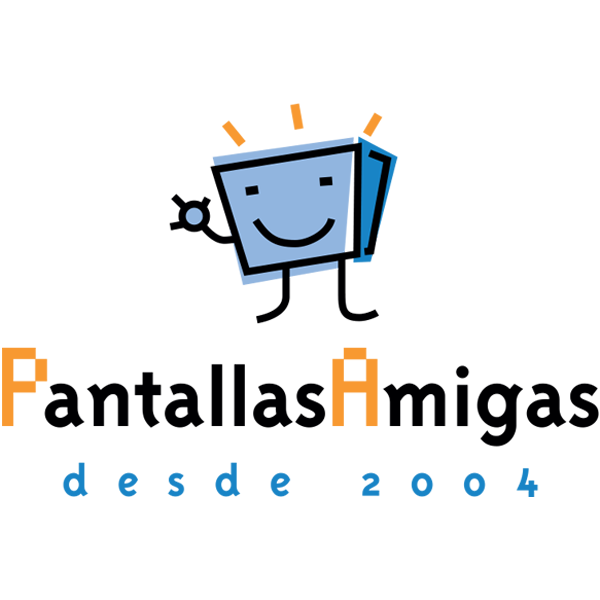 (Beneficiary) | Pantallas AmigasCreated in 2004 by and to promote education for cyber-citizenship and digital well-being, with a focus on children's rights. Its activities include the creation of educational resources, awareness-raising campaigns and informative conferences, advice to institutions, educational centres and families, the development of training plans and intervention in public policies. Pantallas Amigas participates in the following activities:
|
(Beneficiary) | Spanish Association of Paediatrics (AEP)The Spanish Association of Paediatrics (AEP) is a non-profit scientific-medical society whose main purpose is to guarantee the health and well-being of children and adolescents in their physical, psychological, social and environmental dimensions. As a body representing paediatric professionals, one of the AEP's main objectives is to promote the development of the speciality in the areas of care —preventive, curative and rehabilitative— as well as in teaching and research, with special attention to social and professional issues. The AEP currently represents nearly 13,000 paediatricians. Under the management of INCIBE, the AEP has launched the Digital Family Plan, an initiative that provides families with tools and resources to promote the appropriate and healthy use of screens in the family environment. The key to the rational use of these devices begins with the example that adults set for their children. The actions and messages disseminated on this platform are aligned with the guidelines of the SIC-SPAIN 3.0 consortium. |
(Associated Partner) | The National Institute of Educational Technology and Teacher Training (INTEF)The National Institute of Educational Technologies and Teacher Training (INTEF) is the unit of the Ministry of Education and Professional Training responsible for integrating ICT and Teacher Training into the non-university levels of education. It has the rank of a Sub-directorate General, and is part of the Directorate-General of Evaluation and Territorial Cooperation, which in turn is part of the Secretariat of State of Education. INTEF carries out the functions attributed to the Directorate General for the development and dissemination of curricular materials and other support documents for teachers, the design of teacher training models and the design and implementation of specific programmes, in collaboration with the Autonomous Communities, aimed at the scientific and didactic updating of teachers at the different educational levels. Its contribution in the team is to participate as a strategic partner of INCIBE in the development of awareness campaigns aimed at the educational community for the development of digital skills in online security and collaboration in the development of an online course aimed at police officers in the framework of the 'Master Plan for Coexistence and Improvement of Security in Educational Centres and their Environment'. |
Related European Projects

2016 - 2019 (Beneficiary) | Internet Segura for Kids (IS4K)Internet Security Centre for children in Spain promotes the safe and responsible use of the Internet and new technologies among children and adolescents. In line with the European BIK (Better Internet for Kids) strategy, is part of the pan-European network INSAFE of Internet Safety Centers. Website IS4K |
 2019 - 2020 (Coordinator) | Safer Internet Centre Spain (SIC-SPAIN)The SIC-SPAIN project continues and extends the service provided by Internet Segura for Kids (IS4K). It promotes the safe and responsible use of the Internet and new technologies among children and adolescents. In line with the European BIK (Better Internet for Kids) strategy, is part of the pan-European network INSAFE of Internet Safety Centres. |
2021 - 02/2022 | Safer Internet Centre Spain 2.0 (SIC-SPAIN 2.0)The Safer Internet Centre Spain 2.0 (SIC-SPAIN 2.0) project is a continuation of the SIC-SPAIN project with the same three objectives: awareness-raising, helpline and reporting channel for dangerous content. With regard to the first of these, the public-private collaboration platform to promote the safe use of the Internet has been extended. The operations of helpline, as well as the hotline, will guide the design of specific awareness campaigns that will contribute to the development of the European Strategy's capacities: Better Internet for Kids (BIK). |
03/2022 - 02/2024 (Coordinador) | Safer Internet Centre Spain 3.0 (SIC-SPAIN 3.0)The SIC-SPAIN 3.0 project continues the SIC-SPAIN 2.0 project for 2 years, strengthening the lines of activity linked to the Spanish SIC, to promote online opportunities and tackle risks in order to make the Internet safer for minors. Respecting the same three objectives of awareness-raising, helpline and hotline, this project aims to help minors to deal with online risks and to become citizens capable of analysing media information and applying critical judgement. |





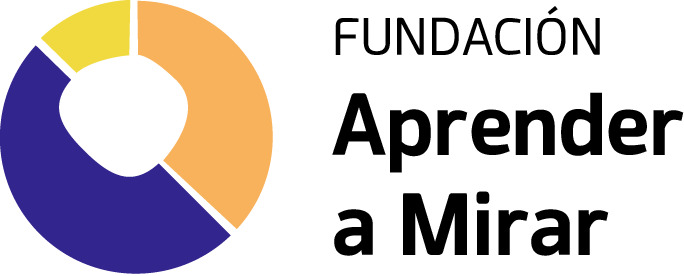

 (Beneficiary)
(Beneficiary)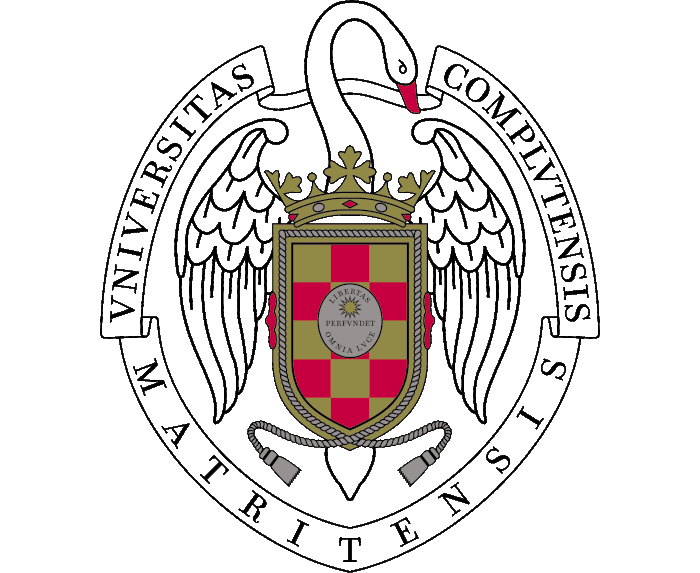
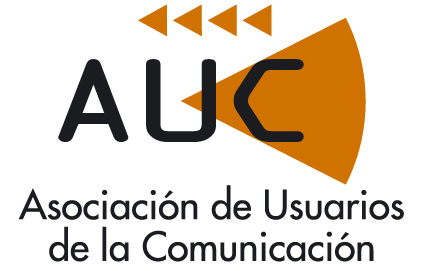

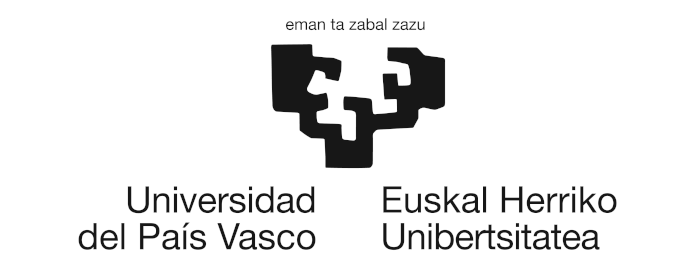

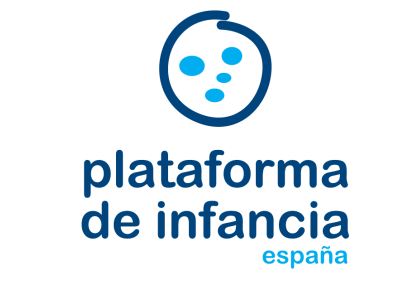 (Beneficiary)
(Beneficiary)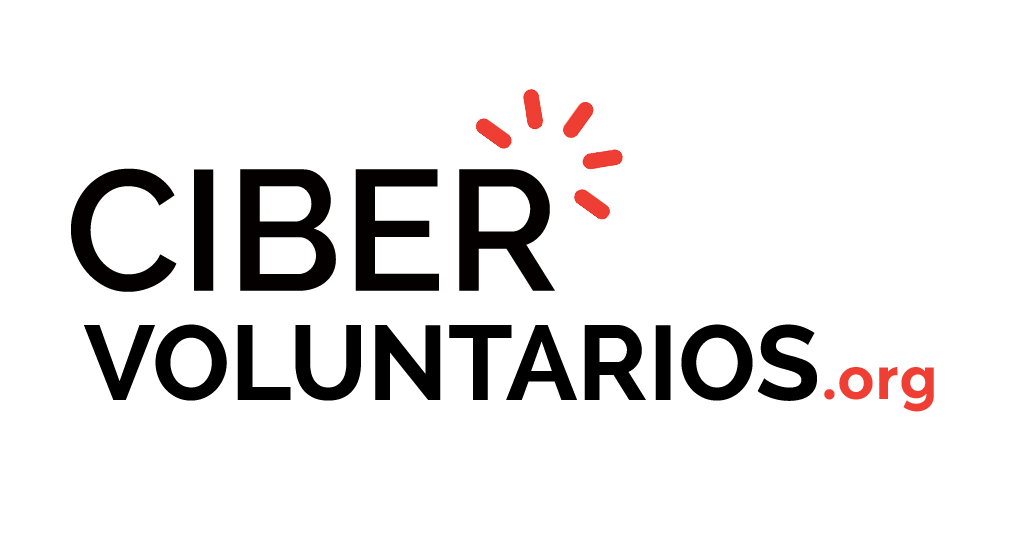 (Beneficiary)
(Beneficiary)